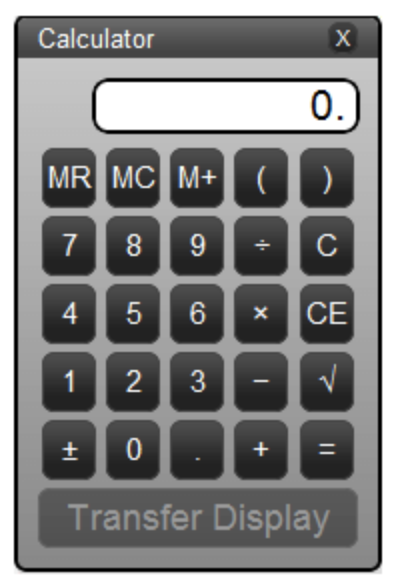GRE stands for Graduate Record Examinations and it is a compulsory part of most Masters or Ph.D. applications in the U.S. At first glance, GRE seems like an easy exam, especially when you realize that it only tests your English and Math skills. However, after attempting just one four hour practice exam, you will realize that it tests much more than that. The GRE tests how fast you can think, how well you are able to articulate your thoughts under pressure, and if you can comprehend difficult phrases and interpretations used in an advanced academic setting. Whether you are attempting to score well on your first try or hoping to improve your score, this guide will help you get there.
The Basics
Format: Online. Either at home (due to COVID-19) or in a designated test center.
Sections: Analytical Writing (6 points), Verbal Reasoning (170 points), and Quantitative Reasoning (170 points).
Duration: 3 hours and 45 minutes with a 1-minute break after each section and a 10-minute break after the third section.
Cost: $205
Allowed Attempts: Once every 21 days, five times a year.
Test Takers: Around 0.5 million each year
Most Effective Way
With the basics out of the way, let’s talk about the best way to study for the GRE to get a score of 320+, a score that is considered good enough for most graduate schools in the U.S. Through my experience, I have found that the single most important thing you can do to increase your GRE score is to attempt full-length practice exams while mimicking the test conditions. Attempting practice exams and then carefully studying your mistakes is a much more efficient way to prepare than studying specific topics and covering each one. After the first practice exam, also known as the diagnostic exam, you will be surprised to learn how much you already know and it will give you a better idea of what topics to study. There are lots of companies that sell GRE practice exams. Be vary of exams that are too easy or too difficult and always read the reviews before buying one. When it comes to practice exams, this is my suggestion:
- ETS, the company that created GRE, provides access to two free practice exams on their website here. Treat these exams with care, as these the only two available exams which are closest to the real thing. Take one of these exams as a diagnostic exam before you start your preparation. Save the other one for the end, a few days before your actual exam so that you can accurately assess your preparedness level.
- With hundreds of other companies offering GRE practice exams, the one I can vouch for personally are the exams made by Manhattan Prep as they are closest to those offered by ETS. They offer one free practice exam, which can be accessed here. However, to access 6 more exams, you need to pay $49. I found a small hack to this. Instead of buying the extra exams from their website, you can buy a Kindle version of any of the Manhattan Prep’s Strategic Guides from Amazon India for $6 which will give you access to the 6 practice exams by following these steps. This worked for me back in 2018.
These 9 full-length practice exams should be enough to get a high score if you take them mimicking the actual test conditions. This means taking no extra breaks, trying your very best, and reviewing each and every question you got wrong at the end of the exam. Take advantage of the in-depth question explanations provided by the test makers.
Analytical Writing
In this section, you are required to write two essays, for which you are given 30 minutes per essay. The first essay focuses on the Issue task and the second on the Argument task. More details about each task can be found on the ETS’ website. Both of these are graded on a scale of 0 – 6 with increments of 0.5.
With a limited amount of time, the most important thing to focus on is clarity in your essays. Make sure to include an introductory and concluding sentence and divide your essay into 3-4 short paragraphs. Focus on one main point in each paragraph and use transitioning words to join them together. In the Issue task, you can use examples from your own life, movies or current events. In the Argument task, remember that you are evaluating the logical soundness of an argument of another writer instead of expressing your own views.
Leading up to the exam, practice your essay writing skills, as well as typing skills. By looking at the sample essays on ETS’ website, it is clear that longer essays tend to get higher points. However, it is much better to have a short but complete essay, rather than a long and incomplete one. It is tempting to skip this section in the practice exams. Avoid doing that. As this will be the first one hour of the exam, practice as much as you can so that you are used to writing two essays in one hour and you don’t feel mentally exhausted before starting the next section. You can find a list of essay topics for the Issue task and the Argument task online.
Verbal Reasoning
Each verbal reasoning section in the GRE consists of 20 questions assessing your vocabulary, reading comprehension, and critical reasoning. You will have 30 minutes to complete each section. Altogether, the verbal section accounts for 170 points of your total GRE score of 340.
If you have a few months until your GRE, I would suggest reading as much as possible every day to build your verbal reasoning skills. Read articles from reputable sources such as The New Yorker, The Atlantic, or Vice. Read books of your choice, from any genre. The goal is to develop a consistent reading habit and to get comfortable with reading high-quality content. If you have been out of school for a while or not used to writing or reading in English, it is also worthwhile to go over critical grammatical rules.
The best way to build vocabulary words is to use Magoosh’ GRE Vocabulary Flashcards app on Android or the Apple store. Whenever you are bored or doing something mundane like riding a bus, open the app, and study vocabulary words for a few minutes. The app does an excellent job of incorporating spaced repetitions so that you are constantly revising old words until you master them. Apart from reading and practice exams, watching movies and tv shows with subtitles is also a really good way to build your vocabulary. You would be surprised at how often the writers of popular shows like The Big Bang Theory or Ozark sprinkle commonly used GRE words in their script.
A lot of students in the science and engineering departments undermine the importance of the verbal reasoning section. This is a big mistake. To be an excellent graduate student, you need to constantly read other people’s publications, interpret the results, and write conference or journal papers of your own. A low verbal score indicates that you are less likely to comprehend the often difficult language used in scientific publications. It is also a red flag for those who are hoping to work as a teaching assistant, where communicating efficiently with the students is an essential part of the job.
Quantitative Reasoning
The GRE quantitative reasoning (or Math) section tests basic high school maths. The thing that makes this section so difficult is the time limit. Each section consists of 20 questions, with 35 minutes to complete it. This means you get less than two minutes to attempt each question. Really, the best way to go about this is to do timed practice exams and then study the answers to the questions you got wrong. You are allowed to use a basic online calculator (see image), but try getting used to working without one to save time.

If you have been out of school for a while or didn’t perform well in your Math-related courses, I would suggest first taking the diagnostic exam and then going over the weak areas related to Arithmetic, Algebra, Geometry, and Data Analysis using this review document. As you progress through practice exams, you will be able to notice question types in milliseconds and able to apply the right formula or technique. Other than multiple-choice, some questions ask the test taker to type the answer in a box. As the GRE’s quantitative section is computer-graded, pay close attention while typing in your answer so that you get an exact match.
Essential Tips
- You are allowed to use a scratch paper with a pencil in all sections. Even though you must submit your scratch paper to the test examiner at the end, it has no effect on your score. Here’s a simple guide on getting most out of the scratch paper.
- If a question seems too difficult, mark and skip it. You are allowed to review old questions in the same section (see image).
- Attempt all questions. Unlike the SAT, you don’t lose points for wrong answers in the GRE.
- Never submit a section early, no matter how sure you are of your answers. You can use the extra time rechecking your answers or simply resting your mind for a few minutes.

An excellent GRE score can be your ticket to getting a fully-funded offer from an American university. In some cases, the GRE score is given a higher weightage than an applicant’s GPA, especially when the applicant holds a degree from a foreign institution that does not follow the same GPA system as American universities. For those who have exam performance anxiety or simply do not think they will do well in the GRE, I can tell you from my personal experience that you have nothing to be afraid of. The GRE can be cracked even if you performed poorly in your English or Math related courses during undergraduate or have been out of the university for a while. It’s just a matter of staying consistent and honest with your practice exams.
If you have any questions, please leave them in the comments below or send me an email via hello@irfantahir.com
Related Posts:
The Complete Guide to Writing a Statement of Purpose for a Master’s or Ph.D. Application From Scratch
How To Get A Fully-Funded Offer For a U.S. Graduate Program: Timeline for Fall 2021 Applicants

Hi Irfan,
I was wondering what is your take on the AWA score? I have got a 4/6 and was wondering if it’s a tad bit too low. My other components were Q – 163 and V – 152, which are decent but unsure if the AWA score will affect my chances to get a fully-funded program.
Hi Shreepriya, I think 4/6 is good enough for a STEM program. Your quant score is really good but verbal is a bit low. Some graduate students do expect their students to score well on the verbal part as well as a lot of graduate research involves reading and writing. An overall score of 315 is good, but not great. You can supplement this score with published papers if you have any. Hope that helps.
That was pretty helpful, thank you so much!